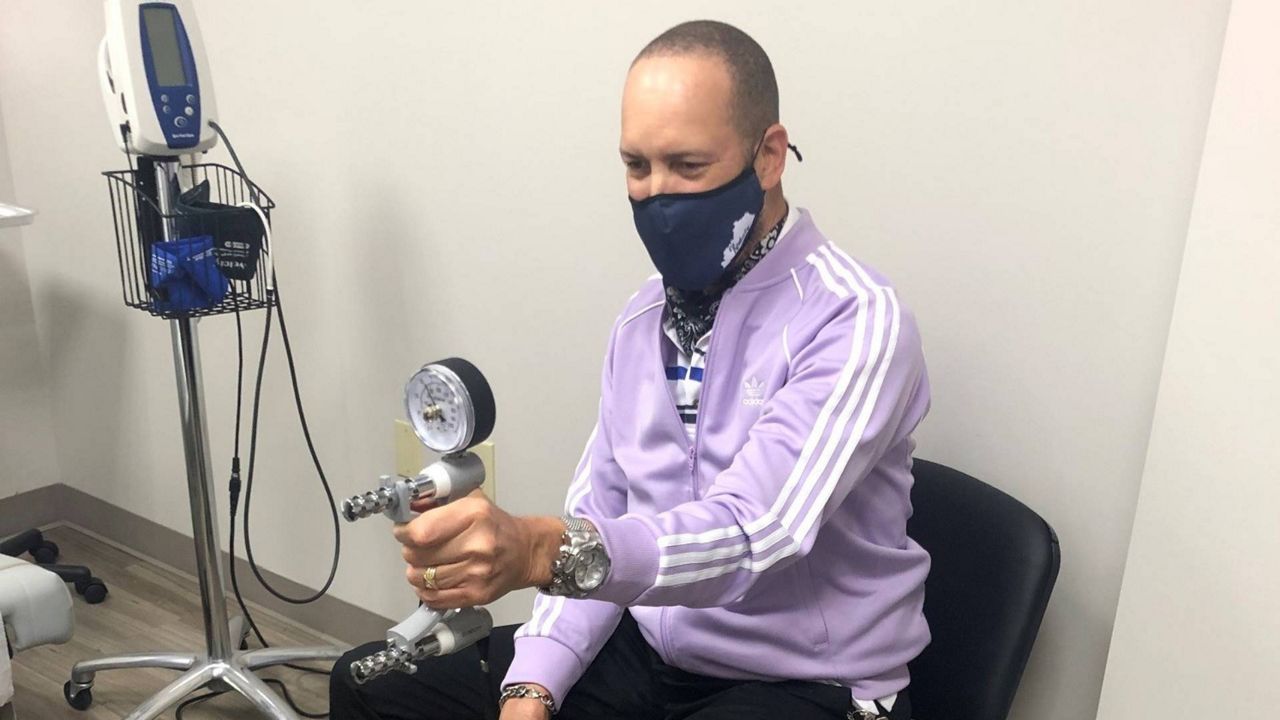LOUISVILLE, Ky. — Researchers at the University of Louisville (UofL) hope to better understand the long- and short-term effects of COVID-19 with the Post COVID-19 Research Clinic. UofL's Division of Infectious Diseases created the multidisciplinary research clinic to study the wide variety of symptoms and effects of COVID-19.
What You Need To Know
- Researchers hope to better understand effects of COVID-19 with UofL's Post COVID-19 Research Clinic
- People from Louisville and surrounding areas previously diagnosed with COVID-19 can volunteer to participate
- Common post-COVID symptoms include decreased cardiac function, decreased lung capacity, and joint or muscle pain
- Vaccination status does not impact eligibility
People from Louisville and surrounding areas who were previously diagnosed with COVID-19 can volunteer to participate in the research study to document and monitor their symptoms and health changes over time.
“We will conduct comprehensive mental and physical assessments to determine the many possible effects of COVID-19,” said T’shura Ali, Ph.D., M.P.H., a UofL postdoctoral associate who manages the research clinic. “We want to expand the knowledge of how the disease progresses, to help improve treatments and interventions — both when patients are initially sick and after — to define, measure and prevent the long-term effects of COVID-19.”
In a release, UofL said post-COVID symptoms can be "any change in quality of life, health status or symptoms that emerge after the infection." Some of the most common symptoms include:
- Decreased cardiac function (fast-beating or pounding heart, heart palpitations, chest pains)
- Decreased lung capacity (difficulty breathing or shortness of breath)
- Joint or muscle pain
- Blood clotting issues
- A decline in mental health
- Intense migraines or headaches
- Fatigue
- Brain fog (difficulty thinking or concentrating)
- Continued loss of smell or taste
People are eligible to participate in the study whether they have experienced long-term symptoms following infection or had no additional symptoms, and vaccination status doesn't affect eligibility.
The release said researchers will record participants' health history and all their COVID-19 symptoms and health changes over time. They will record vital signs, conduct physical examinations and administer validated health assessments, vision tests, lung function tests and electrocardiograms (EKG). Participants will also be asked to provide blood and urine samples at each visit. The data will be analyzed by a group of experts led by Julio Ramirez, M.D., professor and chief of the Division of Infectious Diseases, including physicians and researchers in cardiovascular medicine, perioperative medicine, pulmonary care and critical care as well as clinical and translational researchers.
Jiapeng Huang, M.D., Ph.D., professor in the Department of Anesthesiology and Perioperative Medicine, supported by Gilead Sciences, is conducting a sub-study of the research clinic's participants to further study decreased heart and lung functions, some of the most common and severe symptoms associated with COVID-19.
“For this project, we will study the heart, lungs and blood vessels of individuals who have been ill with COVID-19 using ultrasounds done at the clinic. This research will establish the foundation for future preventive and therapeutic strategies,” Huang said.
All appointments and tests are free for the participants. Information will be used for research purposes only and will remain confidential. While the research clinic doesn't provide treatment or referrals, abnormal findings will be reported to participants. Study visits are conducted every three to six months and participants are followed for about one year.



